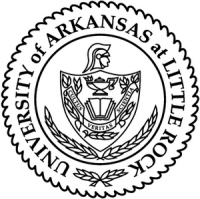-
Mapping Local Earthquake Risks from Eagle Ford Fracking
Scientists simulated the local risk of damaging or nuisance-level shaking caused by hydraulic fracturing across the Eagle Ford shale formation in Texas. The results could inform a new approach to managing human-caused earthquakes.
-
-
Increasing U.S. Production of Rare Earth Elements
The U.S. Department of Energy (DOE) the other day awarded $19 million for 13 projects in traditionally fossil fuel-producing communities across the country to support production of rare earth elements and critical minerals vital to the manufacturing of batteries, magnets, and other components important to the clean energy economy.
-
-
Antarctic Ice-Sheet Melting to Lift Sea Level Higher Than Thought: Study
Global sea-level rise associated with the possible collapse of the West Antarctic Ice Sheet has been significantly underestimated in previous studies, meaning the sea level in a warming world will be greater than anticipated, according to a new study. New calculations show the rise due to warming would be 30 percent above forecasts.
-
-
The SolarWinds Hack Was All but Inevitable – Why National Cyber Defense Is a “Wicked” Problem and What Can Be Done about It

Software supply chains are vulnerable to hackers: Many U.S. companies outsource software development because of a talent shortage, and some of that outsourcing goes to companies in Eastern Europe that are vulnerable to Russian operatives. One problem is that U.S. national cyber defense is split between the Department of Defense and the Department of Homeland Security, which leaves gaps in authority. There are no easy solutions to shoring up U.S. national cyber defenses.
-
-
Cybersecurity Curriculum, Pilot Focused on Veterans and First Responders

The University of Arkansas at Little Rock is part of a coalition of universities and industry partners that are developing a curriculum to increase cybersecurity talent focused on health care with $6.3 million in funding from the National Security Agency. The curriculum focuses on health care cybersecurity.
-
-
In the Wake of SolarWinds: Making and Breaking a Rules-Based Global Cyber Order
We should recognize that the need to make careful distinctions between different categories of cyber operations, and shun the use of emotive and misleading language about “attacks,” should also be extended to the field of political influence via the internet. Using cyberspace to spread propaganda, influence political outcomes and reveal or invent damaging information is an extension of tactics that have been used in different ways for millennia—including by the U.S. Actually trying to rig U.S. elections by tampering with the count online would be completely different and vastly more serious.
-
-
California's Wildfire Season Has Lengthened, and Its Peak Is Now Earlier in the Year
California’s wildfire problem, fueled by a concurrence of climate change and a heightened risk of human-caused ignitions in once uninhabited areas, has been getting worse with each passing year of the 21st century.Researchers have found that the annual burn season has lengthened in the past two decades and that the yearly peak has shifted from August to July.
-
-
New Dashboard Allows U.S.-Mexico Supply Chain Analytics
A new web-based dashboard is designed to predict COVID-19 threats to supply chains, share data and foster analysis. The research provides real-time risk analysis for COVID-19’s potential impacts on trade.
-
-
U.K.'s First Recycling Plant for High-Performance Rare Earth Magnets to Open
The U.K.’s first re-manufacturing line for high-performance sintered rare earth magnets for use in electric vehicles, aerospace, renewable energy technologies and low carbon technologies will be developed by the University of Birmingham.
-
-
Demand for Rare-Earth Metals Is Skyrocketing, So We’re Creating a Safer, Cleaner Way to Recover Them from Old Phones and Laptops
Rare-earth metals are critical to the high-tech society we live in as an essential component of mobile phones, computers and many other everyday devices. But increasing demand and limited global supply means we must urgently find a way to recover these metals efficiently from discarded products.
-
-
New Tool Could Guide Floodwater Management and Combat Ongoing Drought
Using a new computer framework, scientists are able to project future floodwaters under a changing climate. The approach could help California water managers plan for and redirect floodwaters toward groundwater aquifers, alleviating both flood and drought risks.
-
-
U.S. Trying to Insulate Electrical Grid from Cyberattacks
With America’s electrical infrastructure getting zapped daily by an unprecedented number of cyberattacks, the federal government is taking action to prevent a potentially crippling hack of the grid. A 100-day plan was announced Tuesday by the U.S. Energy Department to harden security systems for the country’s electrical infrastructure and increase the ability to detect and neutralize cyber threats.
-
-
U.S. Should Make Monitoring and Detecting Nuclear Threats a Higher National Priority
To address current and evolving nuclear threats, the U.S. needs a higher prioritized and more integrated program for monitoring, detecting, and verifying nuclear test explosions, nuclear weapon stockpiles, and the production of fissile material, says a new report from the National Academies of Sciences.
-
-
Advancing Applied Research in Cybersecurity
The Forge Institute, along with the University of Arkansas Fayetteville (UA-Fayetteville) and University of Arkansas Little Rock (UA-Little Rock), jointly announced a partnership to advance applied research in areas that support our national defense, including cybersecurity.
-
-
Road Salts Are Threatening World's Freshwater Supplies
When winter storms threaten to make travel dangerous, people often turn to salt, spreading it liberally over highways, streets and sidewalks to melt snow and ice. A new study warns that introducing salt into the environment — whether it’s for de-icing roads, fertilizing farmland or other purposes — releases toxic chemical cocktails that create a serious and growing global threat to our freshwater supply and to human health.
-
More headlines
The long view
Helping Strengthen America’s Critical Infrastructure
Everyday life depends on a robust infrastructure network that provides access to running water, communications technology and electricity, among other basic necessities. The experts who keep our national infrastructure secure and resilient also need a strong network to share their knowledge and train the next generation of professionals capable of solving complex infrastructure challenges.
AI and the Future of the U.S. Electric Grid
Despite its age, the U.S. electric grid remains one of the great workhorses of modern life. Whether it can maintain that performance over the next few years may determine how well the U.S. competes in an AI-driven world.
Using Liquid Air for Grid-Scale Energy Storage
New research finds liquid air energy storage could be the lowest-cost option for ensuring a continuous power supply on a future grid dominated by carbon-free but intermittent sources of electricity.
Enhanced Geothermal Systems: A Promising Source of Round-the-Clock Energy
With its capacity to provide 24/7 power, many are warming up to the prospect of geothermal energy. Scientists are currently working to advance human-made reservoirs in Earth’s deep subsurface to stimulate the activity that exists within natural geothermal systems.
Experts Discuss Geothermal Potential
Geothermal energy harnesses the heat from within Earth—the term comes from the Greek words geo (earth) and therme (heat). It is an energy source that has the potential to power all our energy needs for billions of years.
